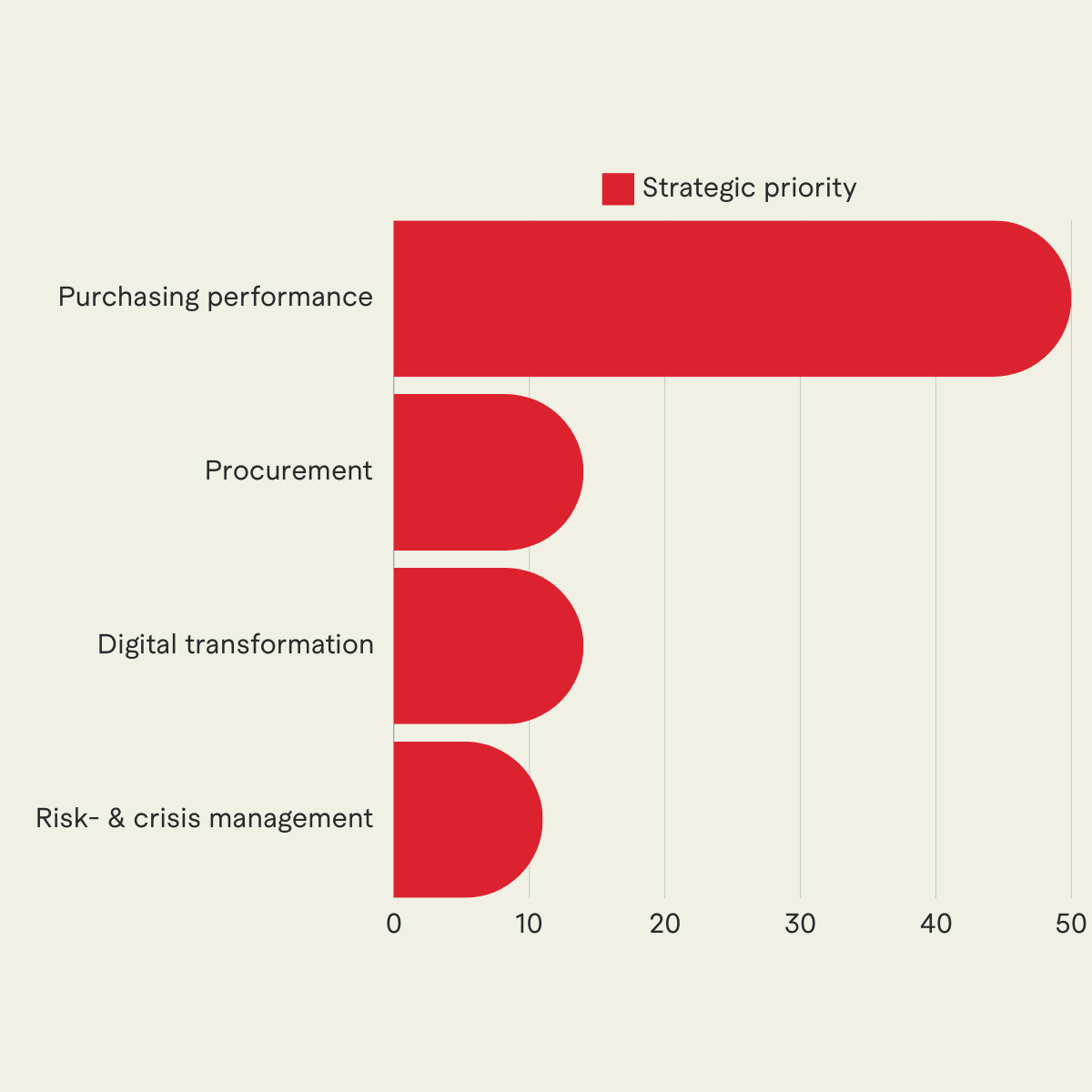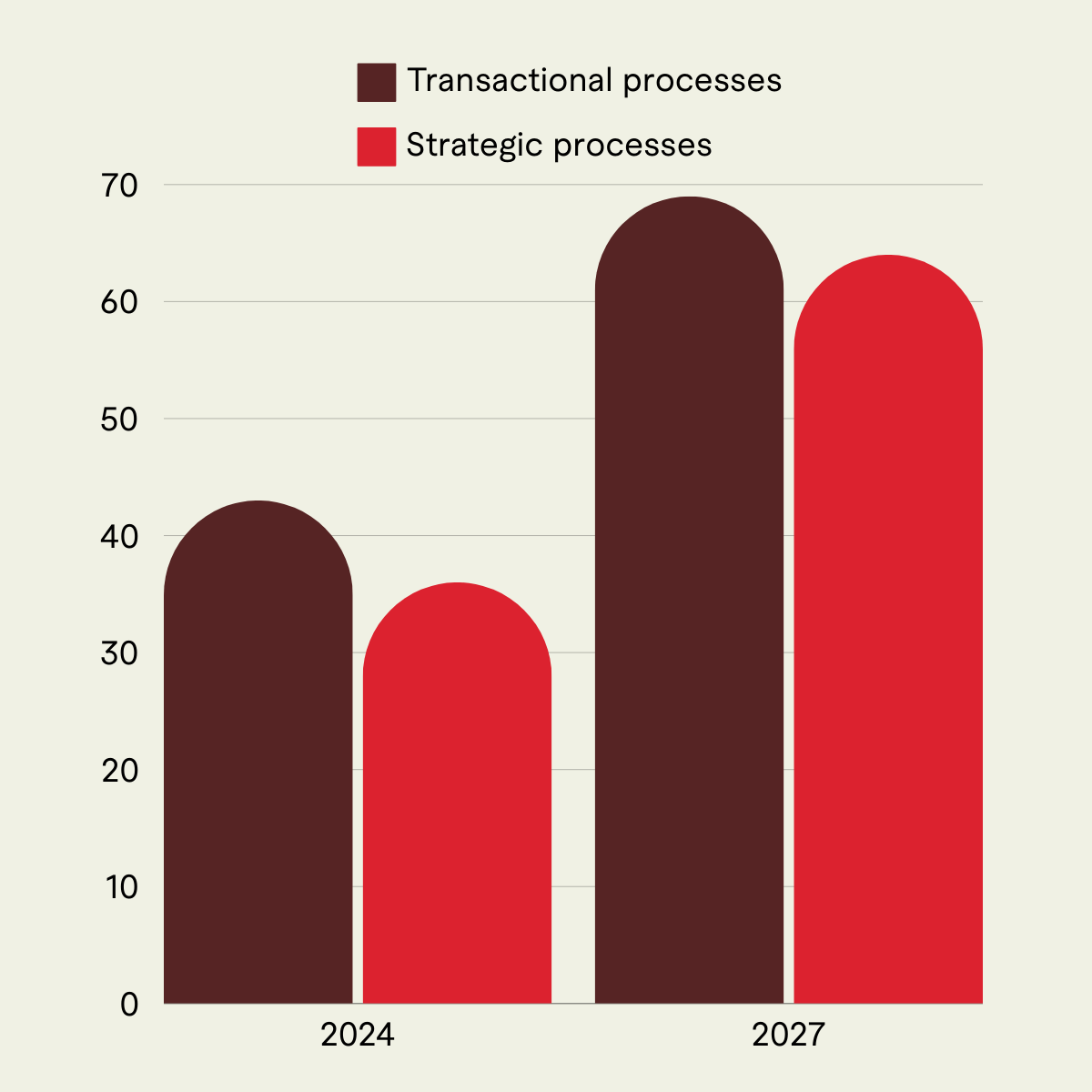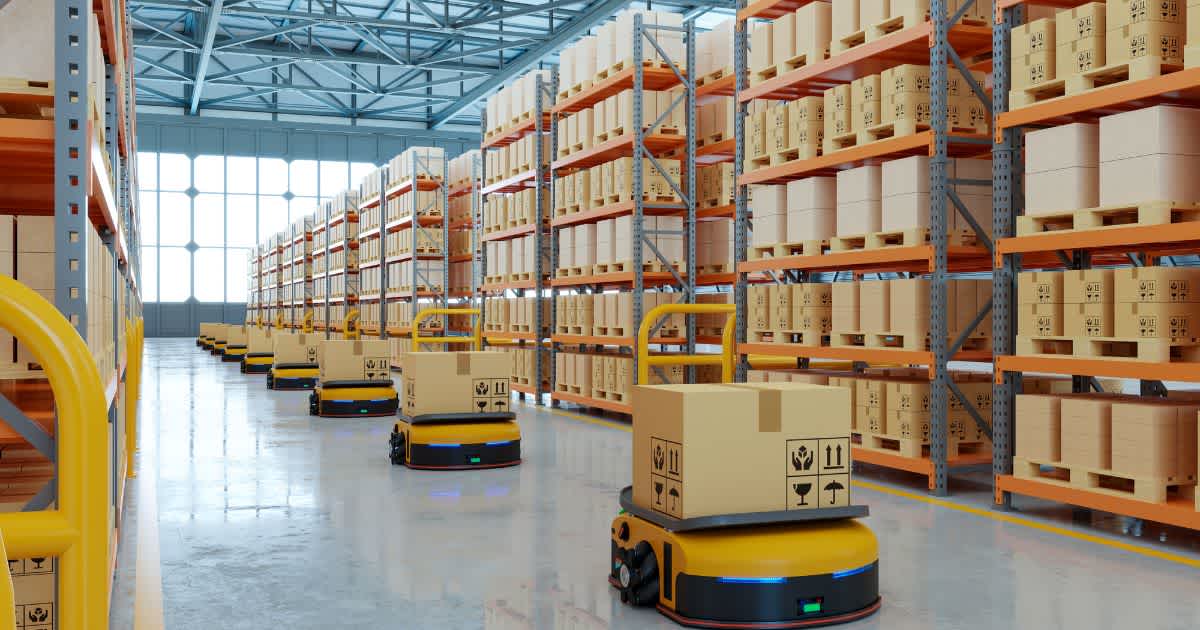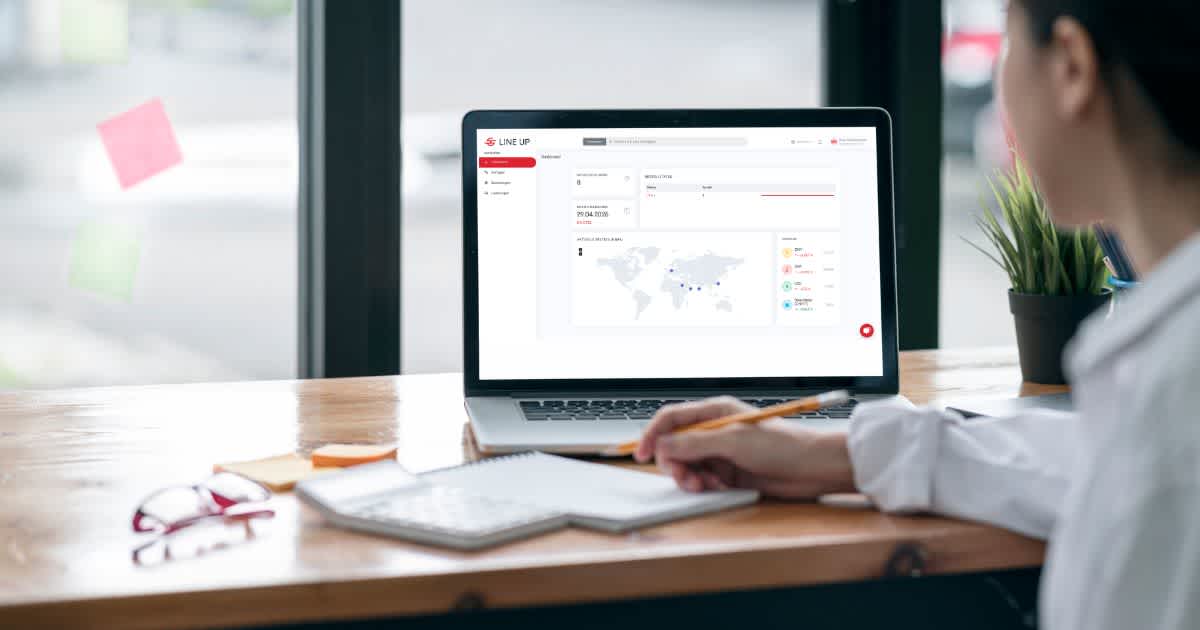Table of Contents
- Digital transformation in procurement: definition, implementation and future prospects
- Digitalisation: definition and implementation in procurement
- Special features & focal points of digital solutions in procurement
- Digital implementation at Line Up
- The digital transformation in logistics: challenges and opportunities for companies
- Forecast of the development of digital procurement solutions & trends
- Our summary and perspectives
Focus: Digitalisation in purchasing
Reading Time: 7 min.

Digital transformation in procurement: definition, implementation and future prospects
In a constantly evolving business world, digitalisation is not just a buzzword, but a crucial strategic initiative for companies to remain competitive. In procurement in particular, digital transformation opens up new opportunities to increase efficiency, reduce costs and improve customer loyalty.
Digitalisation: definition and implementation in procurement
Digitalisation is the process of converting analogue data into digital solutions and integrating digital technologies into business processes. This change enables companies to become more innovative and simplify communication with customers. By converting analogue data into digital formats, companies can also present data transparently and summarise it easily. In the following, we would like to highlight the various possibilities of these electronic procurement solutions:
Telephone orders
Online shops
E-Mails
Apps
Platforms
While conventional ordering methods are often time-consuming and error-prone, these digital solutions enable efficient and automated procurement. For example, platforms offer a high-quality and fast form of message transfer, also known as electronic data interchange (EDI for short). The fast communication channels bring accuracy and efficiency to the procurement process. These digital procurement solutions also facilitate access to suppliers and products and improve overall transparency.
Special features & focal points of digital solutions in procurement
Data and transparency aspects are crucial in procurement. By utilising cloud technology and advanced data analytics, companies can use real-time data to make informed decisions and improve the efficiency of their procurement processes. In addition, close collaboration with partners and internal teams is crucial to support the flow of data and ensure transparency. Another focus is on data security and ensuring compliance with applicable regulations such as the GDPR. The Supply Chain Data Protection Act (CSDDD) and the ESG framework are also driving digital solutions. The Supply Chain Act and the ESG framework are driving companies to make their supply chains more transparent and sustainable. Digital solutions play a crucial role in meeting compliance requirements and optimising processes. They enable companies to collect and analyse data along the supply chain in order to identify potential risks, make them digitally visible to customers and take measures to improve sustainability.
Compliance and integration:
As already mentioned, digitalisation plays an important role in ensuring compliance in procurement by making processes more transparent and traceable. Integrating customers and suppliers into digital procurement platforms improves the efficiency and transparency of the entire supply chain. By integrating compliance tools, companies can ensure that all processes comply with legal requirements and minimise potential risks.
Sustainability aspects:
In addition, digitalisation contributes to sustainability development by enabling companies to monitor and reduce emissions. Precise shipping routes and weight optimisation of goods can help to reduce the environmental footprint of the supply chain. The use of digital tools in procurement also reduces the need for paper and other resources, leading to an overall greener procurement practice.
Digital implementation at Line Up
At Line Up, we develop and utilise innovative digital procurement solutions. By using our proprietary, advanced supply chain dashboard, we can reduce manual processes, minimise errors and maximise transparency along your supply chain. This enables you to act in an agile and data-driven way to make quick decisions along your supply chain. In addition, the Line Up Supply Chain Dashboard allows you to view a complete overview of all orders, including real-time data such as current exchange rates. Communication with you is covered by this platform, which saves you time and money. In addition, you can see how many CO2 emissions are associated with your order and view the emissions per load carrier.
The digital transformation in logistics: challenges and opportunities for companies
A recent study by pwc indicates that the procurement industry will make considerable investments in digital technologies in the coming years. The three most important strategic priorities after improving purchasing performance are procurement, digital transformation and risk and crisis management.

According to a study by pwc, companies in the procurement sector are aiming for significantly increased investment in both transactional and strategic processes by 2027. Transactional processes include the management of supplier and customer data as well as operational management, while strategic processes are understood as forward-looking processes and the development of relationships.
Currently, employee training is seen as the main barrier to successful digital transformation in procurement organisations, which is why many have not yet been able to achieve a full transition to digital processes.
Line Up has developed the Supply Chain Dashboard, a cloud-based solution that is intuitively designed and requires little training. Further digital implementations are planned until 2027 to continuously enrich the industry with innovative digital solutions and offer our customers a seamless and first-class purchasing experience.

Forecast of the development of digital procurement solutions & trends
The future of digital procurement promises an increased integration of AI, blockchain and IoT to further optimise processes and increase supply chain transparency. Other trends could include the increased use of predictive analytics to optimise ordering processes and the implementation of virtual procurement assistants to help companies make more efficient decisions and save time.
Our summary and perspectives
Digitalisation is changing the way companies design and implement their procurement processes. By focussing on innovative technologies and holistic solutions, companies can not only increase their efficiency, but also achieve sustainable and long-term success. It is important to continuously stay up to date and adapt to changing requirements and trends in order to remain competitive in the future. Line Up has started to shape the future and is continuously evolving thanks to the implementation of digital procurement solutions.
Newsletter Registration
Sign up now for our free Line Up newsletter and stay up to date.





